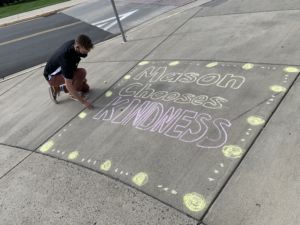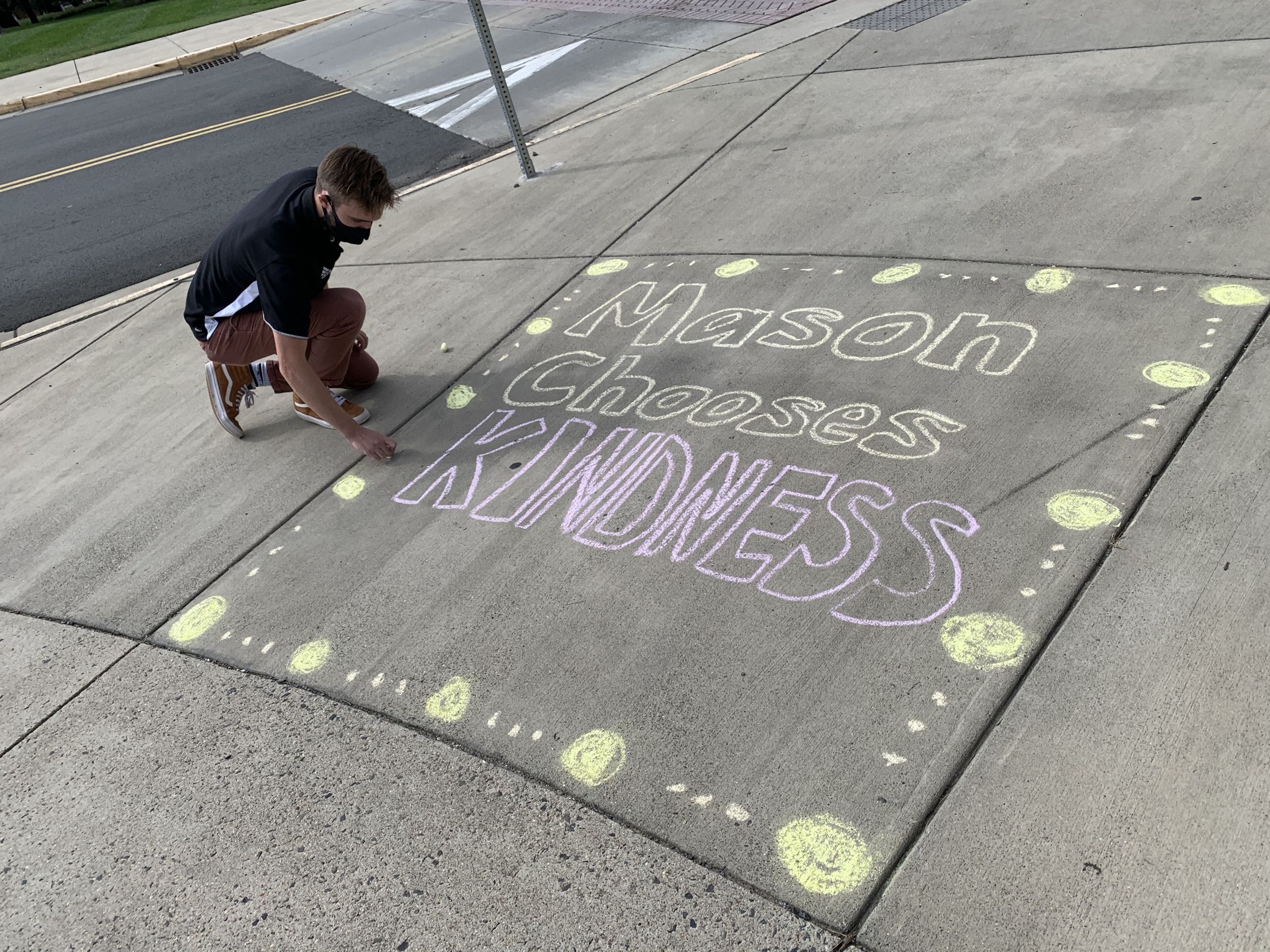
by James E. Maddux, Ph.D, CWB Senior Scholar
“Kindness begins with the understanding that we all struggle.” – Charles Glassman, physician and author
Senior Scholar James Maddux, Ph.D., is University Professor Emeritus and former director of the clinical psychology doctoral program. He and his colleagues cover the science of well-being for our center in these columns.
If we could rate years on a kindness scale, most of us would probably rate 2020 as a pretty unkind year. I need not list the ways in which the past 12 months or so have been so unkind to so many people – in this country and around the world. Yet, if the above quote is true, then because it has been a period of struggle for so many people, the past year has offered more than the usual year’s-worth of opportunities for kindness. In fact, it seemed that as the year went on, I saw more and more stories about extraordinary acts of kindness by people in all walks of life.
What does it mean to be kind? Kindness means different things to different people, but most definitions agree with the Ancient Greek philosopher Aristotle that kindness is the act of being helpful toward someone in need without wanting or expecting anything in return, nor as way of gaining advantage over another person. Kindness is driven by compassion and concern for others. It has no hidden agenda. Being kind is not quite the same as being “nice.” Nice people are polite and courteous. Kind people go a little bit out of their way to help others and make them feel good, even if only in very small ways.
Is there a connection between kindness and happiness? Yes. It should come as no surprise to learn that happier people are kinder people. Of course, it’s easy to be kind when our lives are going well and our sense of well-being is strong. The challenge is being kind when the road of life gets bumpy and things do not seem to be going our way. Ironically, that’s the time when being kind to others will be of greatest benefit to ourselves – because expressions of kindness, like expressions of gratitude, benefit the bestower as much as they benefit the bestowed upon. Acts of kindness are good for us. Being kind makes us happier. One study1 found that people who intentionally performed acts of kindness for 10 days reported greater life satisfaction. Another study2 found that simply counting their acts of kindness for a week increased people’s subjective well-being, possibly because monitoring our behavior leads to greater awareness of it. Finally, another study3 found that it didn’t matter what acts of kindness people performed or toward whom they acted kind – loved ones, friends, acquaintances, strangers, or even themselves. The effect on subjective well-being was the same.
Here’s an easy activity to try for the next week: Simply count your acts of kindness toward other people. Even better, write them down if you have a chance, or at the end of the day try to recall your acts of kindness toward other people. Research suggests that you will feel better as a result – not to mention the number of people who will feel better because of your kindness.
Doing this may take a little courage for some. I often think that some people fear that others may view their kindness as a sign of weakness and try to take advantage of them. I often think that many leaders of nations think the same. But citizens and political leaders around the world would do well to keep in mind what President Franklin Roosevelt once said: “Human kindness has never weakened the stamina or softened the fiber of a free people. A nation does not have to be cruel to be tough.” Nor do you.
As you move deeper into 2021, don’t just hope for a kinder nation and world, but work to achieve it – word by word, deed by deed, day by day. As the Dalai Lama said, “Be kind whenever possible. It is always possible.”
Additional Reading and Viewing
Learn how our well-being university is putting kindness into action at the Mason Chooses Kindness website.
1Buchanan, K. E., & Bardi, A. (2010). Acts of kindness and acts of novelty affect life satisfaction. Journal of Social Psychology, 150, 235-237. https://doi.org/10.1080/00224540903365554
2Otake, K., Shimai, S., Tanaka-Matsumi, J., Otsui, K., & Fredrickson, B. (2006). Happy people become happier through kindness: A counting kindness intervention. Journal of Happiness Studies, 7, 361-375. https://link.springer.com/article/10.1007%2Fs10902-005-3650-z
Phillips, A., & Taylor, B. (2009). On kindness. London. Penguin Books.
3Rowland, L. & Curry, O.S. (2019). A range of kindness activities boost happiness. Journal of Social Psychology, 159, 34-343. https://doi.org/10.1080/00224545.2018.1469461
10 Incredible Acts of Kindness Caught on Camera – YouTube: https://www.youtube.com/watch?v=vahi77oOsK4
Write one of these Thriving Together Series features! We’re looking for contributions on all topics related to well-being. Read other Thriving Together Series articles here and contact us at cwb@gmu.edu for guidelines. Thank you for helping our Mason community thrive together online!






















